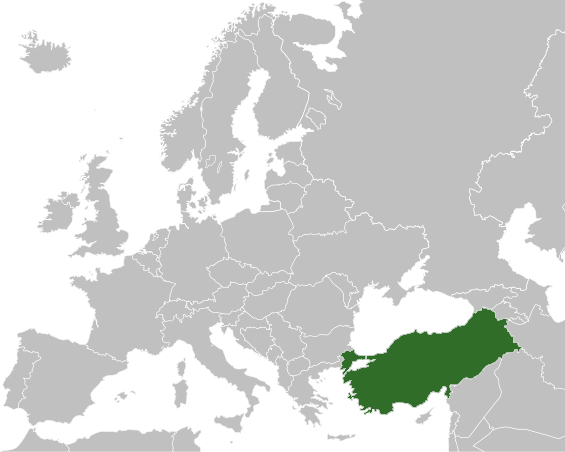Türkiye, known officially as the Republic of Türkiye (Türkiye Cumhuriyeti), is a Eurasian country that stretches across the Anatolian peninsula in western Asia and Thrace (Rumelia) in the Balkan region of southeastern Europe. Türkiye borders eight countries: Bulgaria to the northwest; Greece to the west, Georgia to the northeast; Armenia, Azerbaijan (the exclave of Nakhichevan), and Iran to the east; and Iraq and Syria to the southeast. The Mediterranean Sea and Cyprus are to the south;the Aegean Sea and Archipelago are to the west; and the Black Sea is to the north. Separating Anatolia and Thrace are the Sea of Marmara and the Turkish Straits (the Bosporus and the Dardanelles),which are commonly reckoned to delineate the border between Asia and Europe, thereby making Türkiye transcontinental.
Due to its strategic location astride two continents, Türkiye's culture has a unique blend of Eastern and Western tradition. A powerful regional presence in the Eurasian landmass with strong historic, cultural and economic influence in the area between the European Union in the west and Central Asia in the east, Russia in the north and the Middle East in the south, Türkiye has come to acquire increasing strategic significance.
Türkiye, classified as a developed country by the CIA and a newly industrialized country by economists and political scientists worldwide, is a democratic, secular, unitary, constitutional republic whose political system as established in 1923 under the leadership of Mustafa Kemal Atatürk, following the fall of the Ottoman Empire in the aftermath of World War 1. Since then, Türkiye has become increasingly integrated with the West while continuing to foster relations with the Eastern world.
